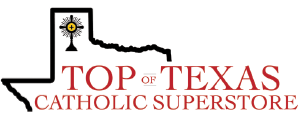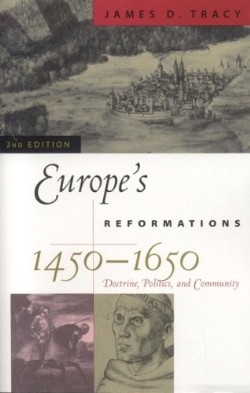James Tracy
Showing the single result
-
Europes Reformatios 1459-1650
$52.00Add to cartPart One: Introduction
Premises
The Reformation In European Perspective
Part Two: Doctrine To Live By
Late Medieval Background
Martin Luther, To 1521
The German And Swiss Reformation, 1521-1526
The German And Swiss Reformation, 1526-1555
The European Reformations
Part Three: Politics
The Wars Of Italy, 1494-1559
Wars Of Religion, 1562-1648
The European Reformations
England’s Reformations, 1527-1660
Part Four: Society And Community
Late Medieval Background
The German And Swiss Reformation
Reformations Across Europe
Europe’s Reformations In Global Perspective
Additional Info
In this widely praised history, noted scholar James D. Tracy offers a comprehensive, lucid, and masterful exploration of early modern Europe’s key turning point. Establishing a new standard for histories of the Reformation, Tracy explores the complex religious, political, and social processes that made change possible, even as he synthesizes new understandings of the profound continuities between medieval Catholic Europe and the multi-confessional sixteenth and seventeenth centuries. This revised edition includes new material on Eastern Europe, on how ordinary people experienced religious change, and on the pluralistic societies that began to emerge.Reformation scholars have in recent decades dismantled brick by brick the idea that the Middle Ages came to an abrupt end in 1517. Martin Luther’s Ninety-five Theses fitted into an ongoing debate about how Christians might better understand the Gospel and live its teachings more faithfully. Tracy shows how Reformation-era religious conflicts tilted the balance in church-state relations in favor of the latter, so that the secular power was able to dictate the doctrinal loyalty of its subjects. Religious reform, Catholic as well as Protestant, reinforced the bonds of community, while creating new divisions within towns, villages, neighborhoods, and families. In some areas these tensions were resolved by allowing citizens to profess loyalty both to their separate religious communities and to an overarching body-politic. This compromise, a product of the Reformations, though not willed by the reformers, was the historical foundation of modern, pluralistic society.
Richly illustrated and elegantly written, this book belongs in the library of all scholars, students, and general readers interested in the origins, events, and legacy of Europe’s Reformation.
Features
Offers a detailed glossary and suggested readings
Richly illustrated with over 90 paintings, maps, and drawings
An ideal introduction to the Reformation courses on early modern Europe

